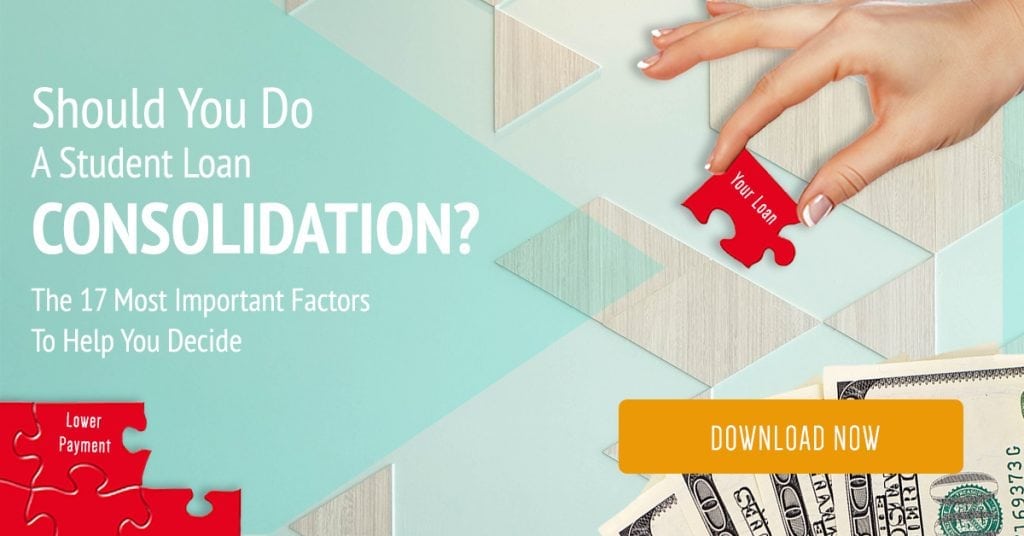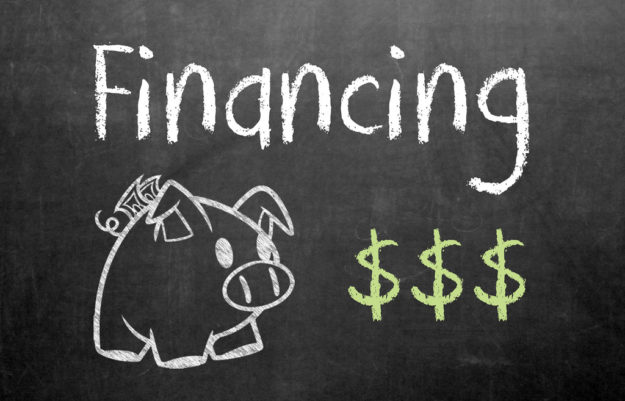Consolidating your student loans is a move that requires careful consideration.
First and foremost, look at the student loan consolidation rates.
Loan consolidation companies have varying rates, and along with these rates, you must also consider the repayment period and borrower protection.
‘Should I consolidate my student loans?‘ Ultimately it’s a question we can’t answer for you, but we can help you see the best decision to make.
(Note: ‘Should I consolidate my student loans?‘ is a question we get all the time here. That’s why we created this easy guide you can download for free to help you understand if a Student Loan Consolidation is the right choice for you. Click here to learn more.)
What are the Best Student Loan Consolidation Rates?

As a matter of fact, there is a fixed rate for applying for a direct consolidation loan.
In any case, the student loan consolidation rate for federal loans may be obtained by rounding up to the nearest one-eighth of 1% the weighted average of your pre-existing loan rates.
In addition, the repayment term ranges from 10 to 30 years. This is mostly determined by your remaining loan balance.
Pros
- You’re still eligible for public service loan forgiveness
- Repayment duration of 30 years
Cons
- Interest accrues over a longer period of time, thereby making you pay more
- Fixed student loan consolidation rate; no flexibility
Our #studentloan term comparison calc allows folks to compare multiple options w/ varying interest rates and terms. https://t.co/WBBzCEmX05 pic.twitter.com/KRmDFtpYni
— Student Loan Hero (@StudentLoanHero) May 26, 2017
Student Loan Refinancing
Actually, student loan refinancing or private student loan consolidation is the common method of student loan consolidation. Presently, these banks are able to consolidate your loans and give you an annual interest rate (APR) on which you make your repayments.
Pros
- Rates are better than federal student loan consolidation
- You’ll end up paying less interest
Cons
- The agreements made are subject to the lender’s terms and conditions
- Requires a credit check and a background check of your other finances, employment, and education
There are good reasons to pursue #studentloan consolidation, but they don’t apply to everyone–especially new grads https://t.co/J8gmReOdVr
— Student Loan Hero (@StudentLoanHero) May 28, 2017
Here are the best student loan consolidation rates for 2017:
1. Citizens Bank
- APR: 4.74% – 8.24 % (fixed) and 2.54% – 8.39% (variable)
- Repayment duration: 5, 10, 15, or 20 years
- Federal or private loans: Both can be consolidated
- Degrees: Undergraduate and graduate
- Borrower protection: 12 months of unemployment
2. ELFI
- APR: 3.35% – 6.69% (fixed) and 2.10% – 6.01% (variable)
- Repayment duration: 5, 7, 10, 15, or 20 years
- Federal or private loans: Both can be consolidated
- Degrees: Undergraduate and graduate
- Borrower protection: 12 months of unemployment and offers forbearance
3. CommonBond
- APR: 3.37% – 6.74% (fixed) and 2.56% – 6.48% (variable)
- Repayment duration: 5, 7, 10, 15, or 20 years
- Federal or private loans: Both can be consolidated
- Degrees: Undergraduate and graduate
- Borrower protection: 12 months of unemployment
Student Loan Consolidation Errors Can Be Costly https://t.co/doWou5zQVh via @adamsminsky
— Adam S. Minsky, Esq. (@AdamSMinsky) May 9, 2017
4. DRB
- APR: 4.20% – 7.20% (fixed) and 3.64% – 6.29% (variable)
- Repayment duration: 5, 7, 10, 15, or 20 years
- Federal or private loans: Both can be consolidated
- Degrees: Undergraduate and graduate
- Borrower protection: 12 months of unemployment
5. SoFi
- APR: 3.37% – 6.74% (fixed) and 2.56% – 6.49% (variable)
- Repayment duration: 5, 7, 10, 15, or 20 years
- Federal or private loans: Both can be consolidated
- Degrees: Undergraduate and graduate
- Borrower protection: 12 months of unemployment
Tips on Consolidating Student Loans
- A fixed rate of below 4% (minimum) and 9% (maximum) is a good rule of thumb to go by. Otherwise, try to find other options if your APR is above these figures.
- Look at the ratio between the life of the loan (repayment duration) and the monthly payment. The difference shouldn’t be so high. If you repay a loan over a longer period of time, your monthly payment will surely be smaller, but the interest will definitely be bigger.
- Look for forbearance or deferment options. For this reason, you’re consolidating your loans is to catch a break from all your other payments. At some point, the same is going to be true for your student loans.
Watch this video from CNN for more information on student loan consolidation rates:
Meanwhile, this article focuses on giving you a review of student loan consolidation rates, you must remember to always take into consideration the other factors that come with the loan.
Arguably, think of how much monthly payment you can handle and for how long you can continue making these payments.
For instance, a consolidated loan frees you from keeping track of multiple loans, but it is still a loan with interest and repayment terms you must be able to manage. Therefore, the best option is always the one which sustains your finances.
Want to know more about student loan consolidation? Here are 7 Refinancing Student Loan Tips. What do you think about these student loan consolidation rates? Let us know in the comments section.



Leave a Reply